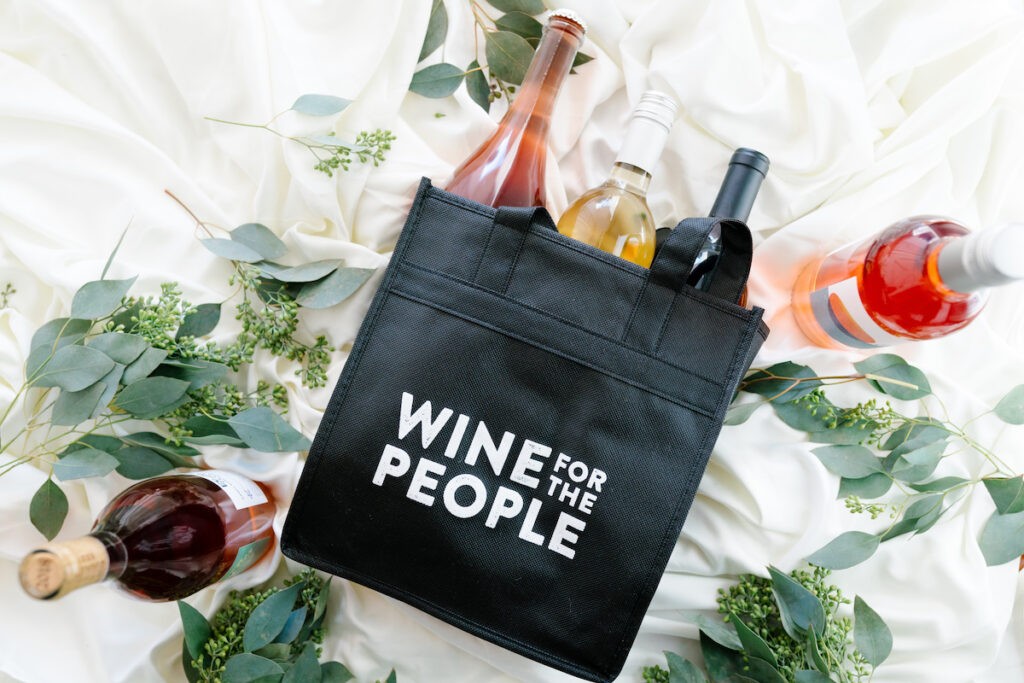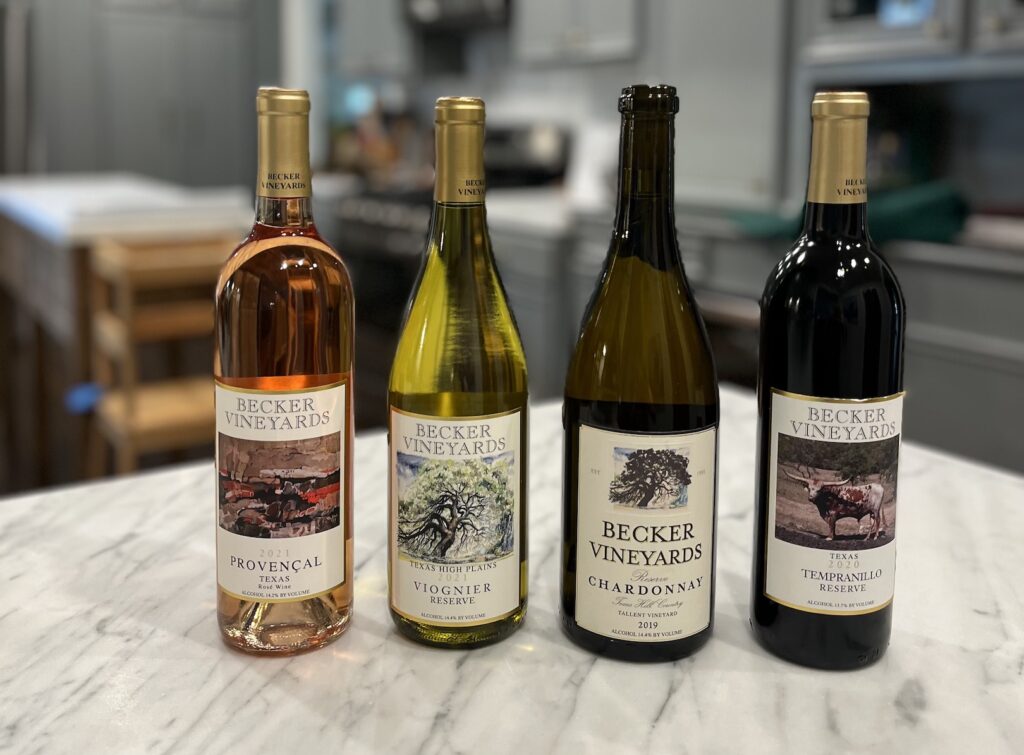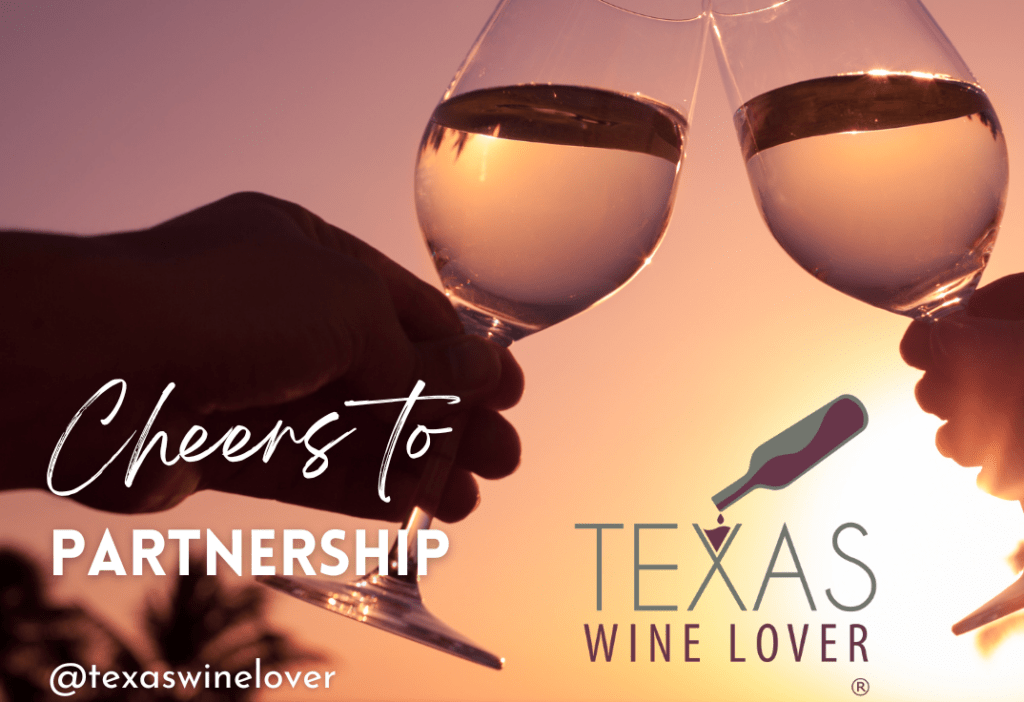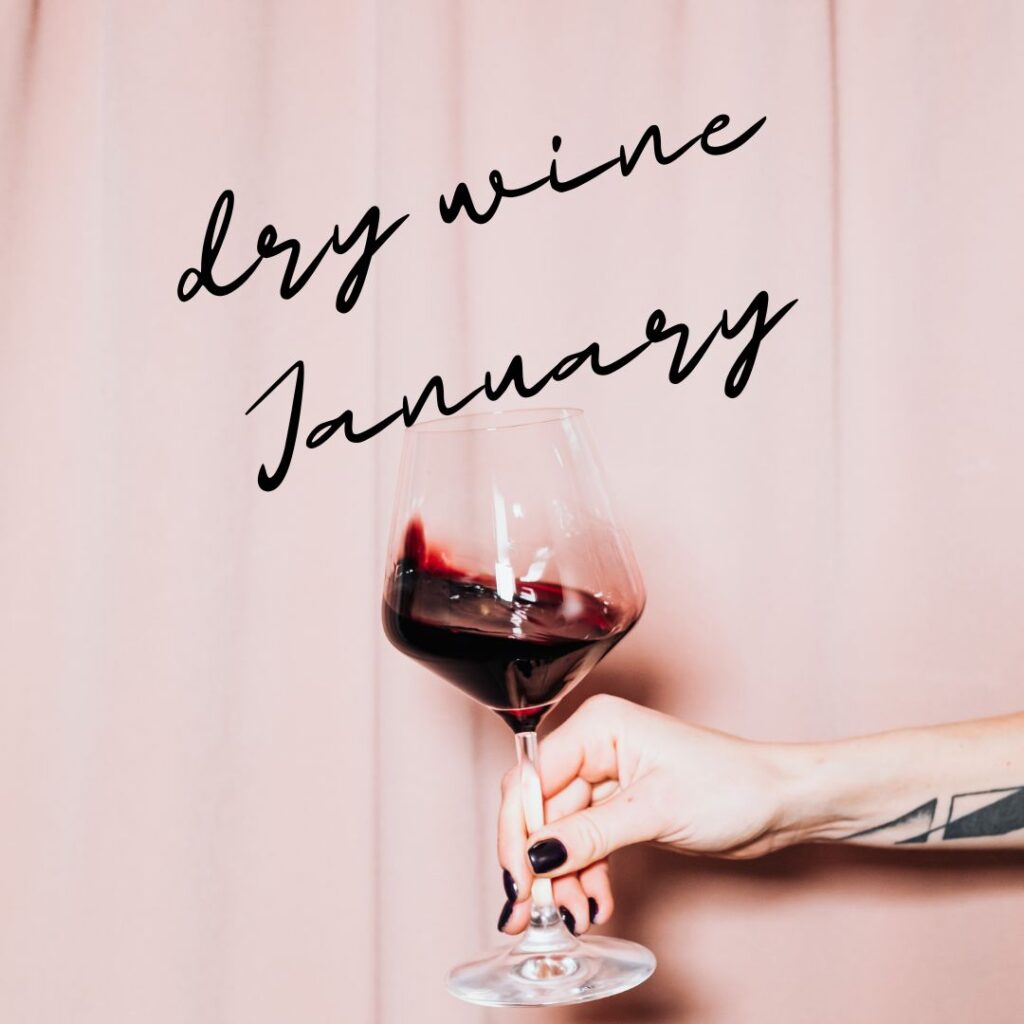Interview with Wine for the People Owner and Winemaker, Rae Wilson
Much of Rae Wilson’s early career was behind the bottle – pouring wines for restaurants and consulting for small producers and restaurants. After working in many restaurant roles and learning beer brewing at Schlafly Brewery in her hometown of Saint Louis, she moved to Austin in 2005 and quickly turned her sights to wine. Soon after she acquired her Advanced Certification from the Wine and Spirits Education Trust and later her Certified Sommelier with the Court of Master Sommeliers.
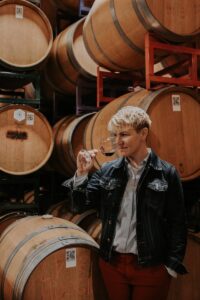
Today she is the founder, owner, and winemaker for a multi-brand winery, she operates a tasting room, and creates space for others to share and learn.
Before planting long-term roots in Austin,Texas, she spent time on the US West Coast and around Europe learning all aspects of the wine industry. She circled back to Central Texas where she is dedicated to producing wine with a sense of place, and cultivating community through wine culture with a greater impact. When recounting her journey in wine, she shared that there were two key surprises: her profession as a winemaker… and a Texas winemaker.
“When I first started, I was focussed on continuing to grow experience in the industry and to create some work for myself. And then, very naturally, I realized I wanted to do more winemaking,” said Wilson. In terms of working in the Texas wine country, Wilson said, “I never knew I’d be living here, much less making wine here. But Texas has become home, and it’s a good place to be making wine.”
She established Wine For The People in 2010, produced her first vintage in 2014, co-founded The Grower Project in 2016, and now is focused on continuing to build the Wine For the People portfolio. But before Wilson began producing under her own brand, she was often a minority in the cellar. The driven entrepreneur Rae is, she worked around the clock and established connections that enabled her to gain access to excellent fruit. When we inquired about her approach to wine, she shared that she’s dedicated to infinitely studying the process and committed to making a career in wine more accessible to others.
“I think my mission has always been to bring more people into the picture. I see it as kind of a responsibility of mine to make more room for more people who might not even have considered the business because it’s just not something people see as even a possibility,” said Wilson.
Wilson’s boutique wines with a sense of place are showcased by her La Valentía collection (e.g. 2020 Carignan, 2019 Syrah Blend, 2020 Chenin Blanc) and her popular duo of Dandy Rosé and Dandy Bubbles, two rosés that have made a huge splash and are Spring/Summertime staples across the state. Her approach to winemaking leverages traditional methods, and draws inspiration from her work in Portugal and France. Wilson’s craft wines are produced with fruit from some of the highest quality vineyards in Texas, by varietals originating mostly from Southern France.
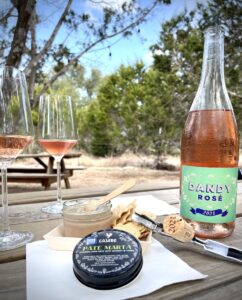
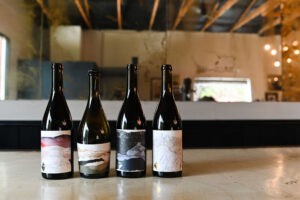
“To me the most notable thing about the industry is that it’s all about connection. Whether it’s helping people connect to where their food or wine comes from, spreading education and telling the story of the people that farm the land, what the soil is like, or why it tastes different when it comes from a particular vineyard. By valuing connection, Wilson believes we can create a unique and personal experience for all. “It breaks it down to the reality of the wine industry. Wine is families and farming, it’s not the idea of this highbrow, status associated product, people, or income.”
Wilson is dedicated to more than just producing the best wine possible, she aims to drive a sustainable and accessible model to the wine industry. Unpacking that, she explained how important it is to consider how the farmworkers are treated, what the living wage is to sustain them, and how to appropriately manage her winery and her tasting room staff around these truths. “All of those fit together in an overall ethos that is built on sustainability, accessibility, and community. I’m looking to broaden access to experience wine in general, whether it’s making getting into the business more accessible, or just getting to enjoying the wine itself,” said Wilson.
Another obstacle to sustainability that the consumer doesn’t always see is the struggle for small producers to stay profitable. Wilson explained that a direct sale for a small producer is ideal, because it’s almost impossible to make and sell wine inexpensively.
“As a small producer, the biggest thing about producing boutique wines is that distribution can be used as a tool but can’t really be the focus. A direct sale for a small producer is how you can make your business sustainable due to the costly process to make high quality wine .” said Wilson.
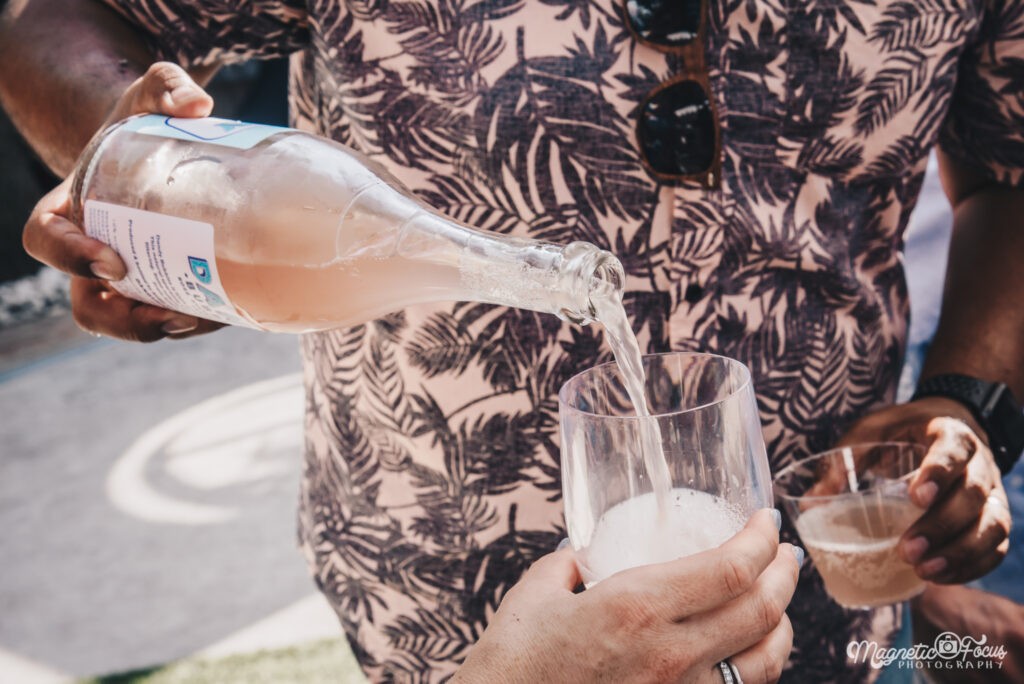
Therefore, expanding the DTC market is a huge focus for most small producers. Plus, in a place like Texas, it can be even harder to build brand awareness, let alone get people to buy Texas wine. When Wilson found that Sommly’s model recognized her need, she knew she had to be a part of telling that story, joining their community, and taking advantage of this new social marketplace for artisan wine.
“I saw immediately, when Sara and Erik were talking about what they were doing, it took me no time to see that it would be really valuable for my company, and for all small production wineries. It gives me one more channel that people can find out about my business, purchase my wine, find another winery they’re interested in, then fill their shopping cart by exploring Texas wines. Without having to find every winery individually or independently, I think the platform is great for making it more easily navigable, and approachable, for consumers to learn and connect with the local industry.” said Wilson.
An observation for anyone interested in Texas wine, but especially for those in the business, Wilson said, “You have to get to know what’s happening here, because it’s not Napa or Bordeaux. We need people to come here and really learn the people, the businesses and what’s really needed.”
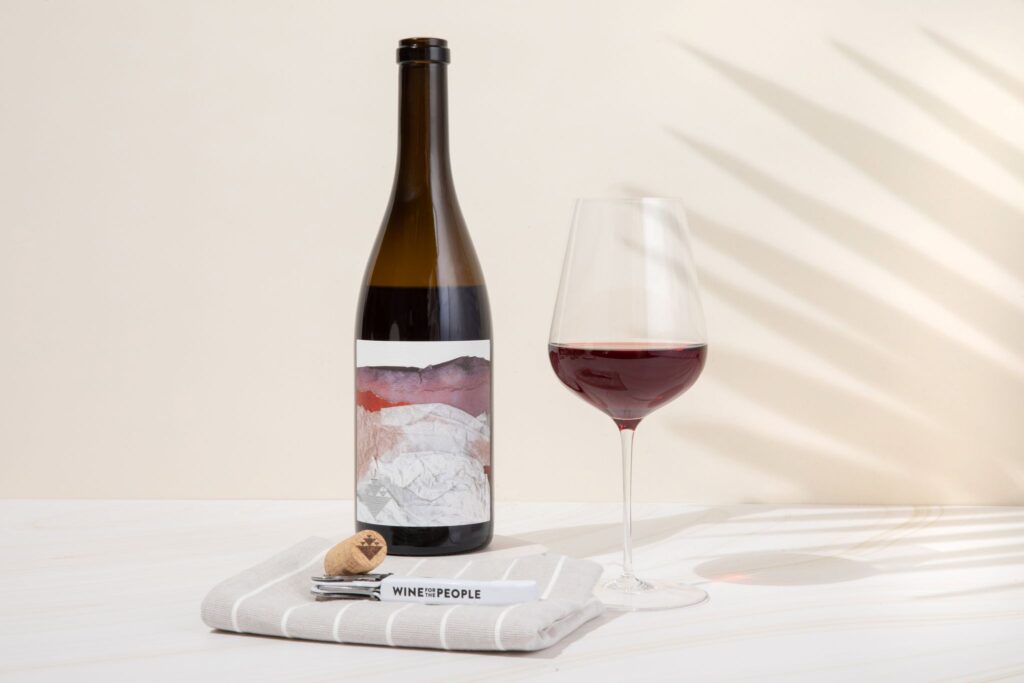
In other words, Texas wine is creating its name for itself slowly but surely. In the near future, Wilson is hopeful that the conversation around Texas wine organically shifts into just the conversation around wine. “I think a lot of people- both in the Texas industry and outside of it, it’s like there’s the whole world of wine, and then there’s Texas wine. And I’m not really interested in that conversation. I’m interested in the conversation of bringing Texas wine into the larger world of wine.”
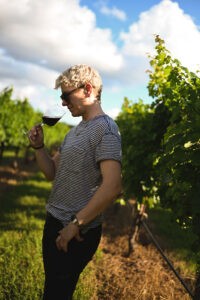
Like her early commitment to helping make wine more accessible, Rae commits to growing her mentorship in wine by recruiting women and people in marginalized groups into the wine business. She says she hopes to continue learning and growing, and she’s ready to follow where the industry takes her.
“When I’m not certain exactly what needs to happen, I just keep walking the direction that feels right, step by step, and then things eventually become clear. What I’ve found is just to persist, don’t take no for an answer, and you’ll find ways to break through.” said Wilson.
Wine For the People’s first vintage was 50 cases of Dandy Rosé; now the production has grown to over 2,500 cases annually, and about ten varietals across two barnds. The artistically designed labels are approachable, yet memorable, and the small production wines are never available for long. Visit the Wine for the People team at their Texas AVA tasting room, and try for yourself!
“We believe it is important for wine to have a sense of place, as it is to contribute to our own sense of place in Austin and the larger world.“

